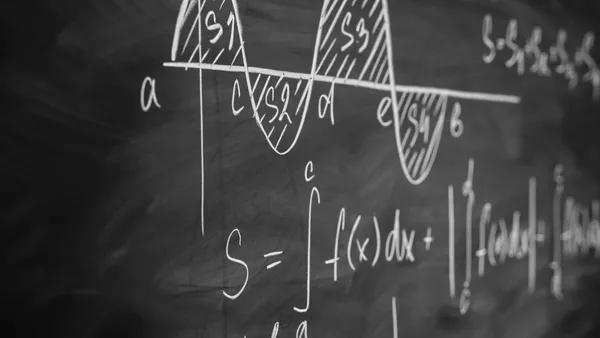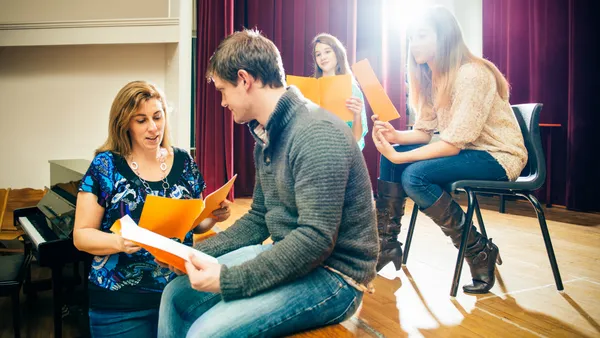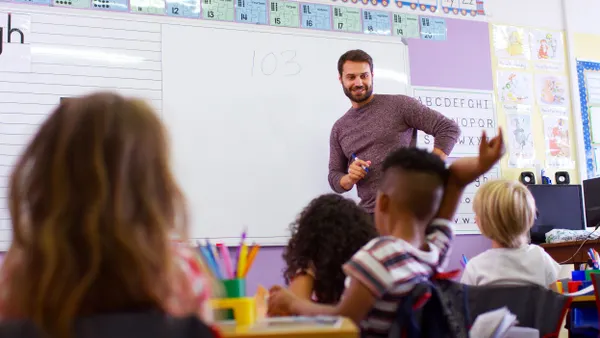Dive Brief:
- Educator Elizabeth Matlick writes for EdSurge that she started using self-assessments, writing reflections and peer reviews with her middle and high school students in a bid to extend guidance on their writing beyond her suggestions.
- However, Matlick found her students weren’t using these critiques as she’d hoped, according to a story in Edutopia. She then looked into research on how a learner’s emotional state may prevent them from taking in suggestions, finding her students were experiencing anxiety when they received criticism.
- Her students then worked together, learning that the way peers delivered feedback was important. But important, too, was the need for the students receiving suggestions to share the optimum ways for them to absorb the critiques.
Dive Insight:
Just as students take in information differently as they learn differently, children also process feedback differently. Some may prefer — and absorb — helpful suggestions that come verbally, while others may prefer having that information come through written avenues. And there is some evidence that video feedback may help students better hear the suggestions made by their teachers without retreating from the criticism.
But peer-based criticism, where students critique each other, has also been shown to have value — for both the reviewer and the student being reviewed. Children learn critical thinking skills in having to assess others' work. But more keenly, they must make decisions about how their suggestions will land with their peers.
For example, in making suggestions to improve an essay a schoolmate has written, a peer may not only consider the changes they’re offering, but the way they’re delivering these points. Their tone may also make a difference in the way these edits land with their classmates.
Learning how to employ empathy, considering how someone may feel when they hear criticism, then helps students also tap into — and develop — social-emotional learning skills. And criticism used in collaborative situations may even be a better choice, notes curriculum association ASCD. The organization believes projects students do together “…can strengthen students’ abilities to encourage others, resolve conflicts, and disagree respectfully….”
Helping students strengthen their academic work is important to their growth as learners. But finding the most effective way to deliver these suggestions may help support all students, from those delivering critiques to those receiving them.











